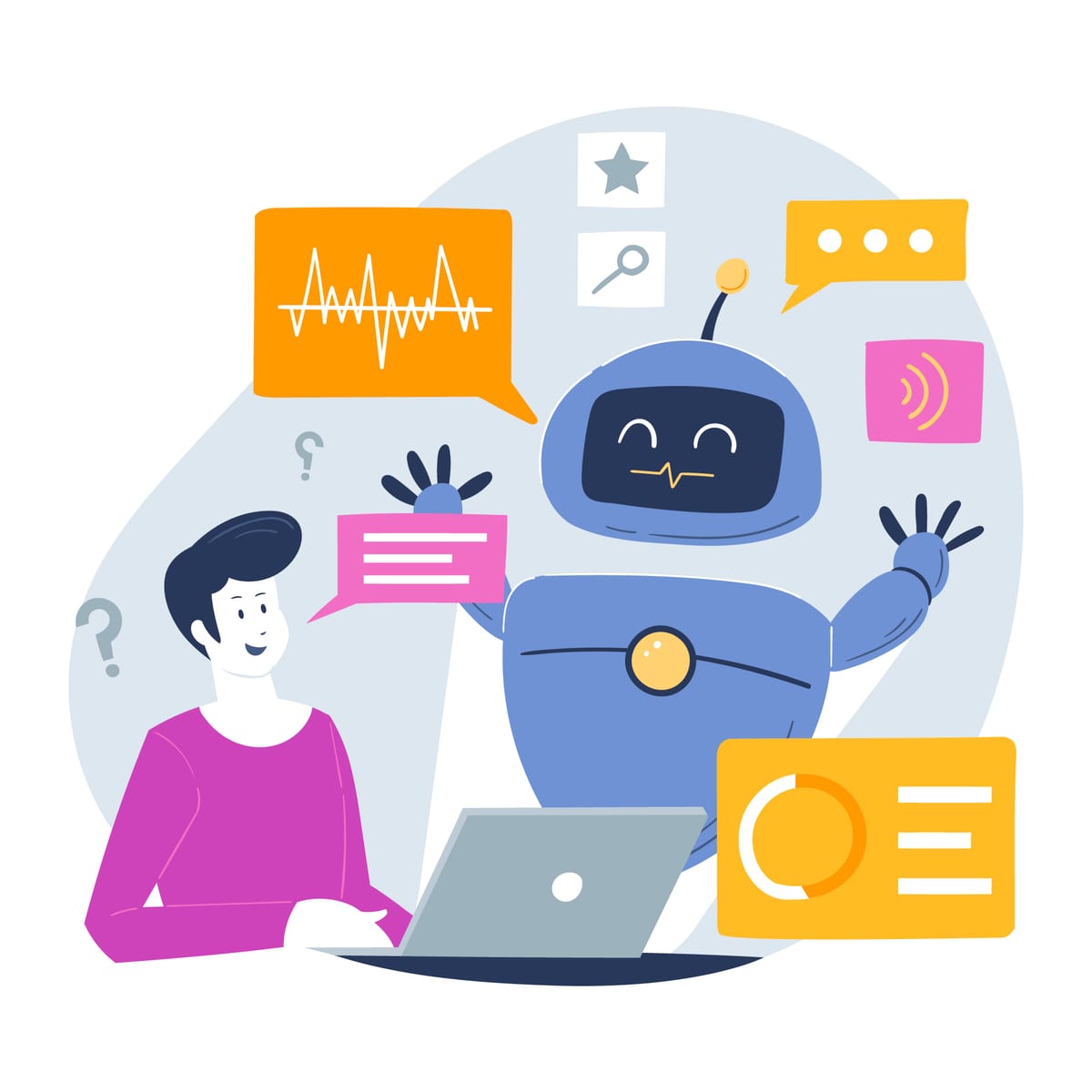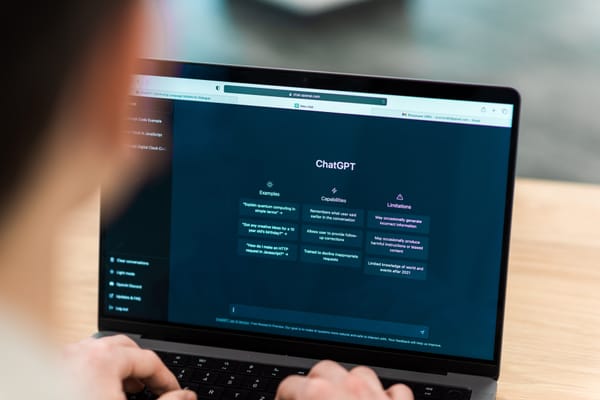How to Create and Sell GPT Chatbots on Opuna
Become a creator of GPT Chatbots and start making money with Opuna.

Opuna is the quickest path to come up with GPT AI chatbots and other AI-based solutions that the digital marketplace is in-need of.
This page contains information on every step you have to take—from the idea stage to how you sell digital products on Opuna's platform.
This go-to solution helps remarkably reduce response times.
Read until the end to find out all the details.
Develop Your GPT Chatbot
The production and sale of GPT-based chatbots through the Opuna platform is a simple process.
We’ll guide you through the steps, making your chatbot ready for the market. Got some digital products to sell? We’ll have you covered.
1. Select a GPT Model
Opuna supports different models, such as GPT-3 and GPT-4, which are both customized and require various features. The purpose of the chatbot, as well as its complexity, should be evaluated before deciding.
See the table below to compare and pick the model you’d go with:
| Model | Essence | Key Features |
|---|---|---|
| GPT-3 | Expanded scale, leading to improvements in language generation. |
|
| GPT-3.5 | Intermediate step with incremental improvements in performance and efficiency. |
|
| GPT-4 | Enhances depth and nuance of language understanding for complex and specialized tasks. |
|
| Codex (OpenAI Codex) | Derivative of GPT-3 fine-tuned for programming tasks. |
|
| ChatGPT | Conversational model derived from GPT-3 |
|
| DALL-E | Variant of GPT-3 for generating images from textual descriptions; merges language understanding with image generation. |
|
| CLIP | Associates images and text for understanding and generating across both modalities. |
|
2. Customize Responses
Customization of the responses is necessary for your chatbot to correspond to the voice of your brand, which would also be compatible with user expectations.
This can be done in the following way:
- Define the personality and the always-wanted tone of your chatbot
- Define your chatbot’s personality and tone
- Create intent and response pairs
- Implement contextual awareness
- Write custom scripts
- Test responses thoroughly
- Refine and update regularly.
3. Train Your Chatbot
Chatbots are trained by giving them relevant data and then improving their performance through the adjustment of hyperparameters and/or the changing of the learning algorithm employed:
- Acquire the appropriate conversation transcripts and datasets.
- Process and clean data to ascertain uniformity and quality.
- Start with the GPT model and evaluate the fine-tuning process through your dataset.
- Monitor training metrics in varying environments
- Update the training data as needed to ensure the chatbot learns correctly and performs optimally.
- Test it on different queries and check its accuracy or relevance against actual data.
- Conduct retraining as required to refine chatbot capacities constantly.
4. Test Your Chatbot
Testing is the most irreplaceable step in chatbot development. It ensures the reliability of the chatbot under different conditions.
- Make sure that this is carried out through automated tools and human finite testers.
- Verify for assurance, response time, and user satisfaction.
- Check the edge cases and less common queries that may be the cause of the machine not being well protected.
The Opuna analytics tools can be used to predict the performance and where to improve.
5. Prepare Your Product for Sale
Before rolling the product out, make sure that your bot is at its best and your users are ready.
Besides, prepare detailed documentation, such as user-guides and FAQs, to help buyers effortlessly integrate and use your chatbot.
Then start producing promotional materials with the help of demo videos, feature lists, and benefit highlights to show your chatbot’s abilities.
You will be able to correctly set the price of your product by drawing on your data from market research and the consideration of your development costs and the money you want to sell it for.
6. Start Selling on Opuna
Hooray! That’s the last step to begin selling digital products:
- Develop a detailed product page alongside an enticing description, explicit use cases, and a written opinion or ratings.
- Work out Opuna’s included marketing tools to a wider audience.
- Implement SEO.
- Discover the performance of your chatbot, from market reception to client feedback.
Tools Needed for Creating a GPT Chatbot
| Category | Tools/Platforms | Description |
|---|---|---|
| GPT Model Access | OpenAI API | Provides access to GPT-3 and GPT-4 models. |
| Opuna Platform | Successful sales | |
| Integrated Development Environment (IDE) | Visual Studio Code | Popular IDE for coding and debugging. |
| PyCharm | Specialized for Python development, often used for AI projects. | |
| Data Handling and Preprocessing | Python | Core language for data manipulation. |
| Pandas | Library for data manipulation and analysis. | |
| NumPy | Library for numerical computations. | |
| NLTK/Spacy | Libraries for natural language processing tasks. | |
| Training and Fine-Tuning Tools | TensorFlow/PyTorch | Frameworks for deep learning and model training. |
| Hugging Face Transformers | Library for accessing pre-trained models and fine-tuning. | |
| Testing and Evaluation | Jupyter Notebooks | For interactive development and testing. |
| Postman | Tool for testing API endpoints. | |
| Chatbot Testing Platforms | Such as Botium for automated chatbot testing. | |
| Deployment Tools | Docker | For containerizing the chatbot application. |
| Kubernetes | For orchestrating deployment, scaling, and management. | |
| Cloud Platforms | AWS, Google Cloud, Azure for hosting and scalability. | |
| Version Control | Git/GitHub | For version control and collaborative development. |
| Analytics and Monitoring | Google Analytics | For tracking user interactions. |
| Sentry | For monitoring errors and performance. | |
| Customer Support and Feedback | Zendesk | For customer support integration. |
| SurveyMonkey | For gathering user feedback. | |
| Documentation and Resources | Markdown Editors | For writing and maintaining documentation. |
| ReadTheDocs | Platform for hosting and publishing documentation. |
How to Monetize Chatbots — Get Started on Opuna
Start making money with Opuna selling your AI-based tools and solutions. The process is straightforward:
1. Press the Sign-up button in the upper-right corner of opuna.com
2. Choose a suitable method to sign up
3. Verify your email address—check your email for this
4. Set up your payments account: go to the My Finance tab and press “Set up your Payments account to start selling”
4.1. Choose your country
4.2. Choose a suitable payment option (pay attention to transfer fees applies)
4.3. Fill out the form and press the Save button
5. Add your product: press ‘My Products’ > Add new product
Placing your product is smooth at Opuna. Fill in the form and your product goes live, and you will sell digital goods:
Opuna Marketplace — Boost Your GPT Chatbots Sales!
Get the most out of your GPT chatbots with the Opuna Marketplace! Our platform serves as a connector.
Register with Opuna and begin the drive to your chatbot’s success today!
You’ll also make 30% more income if you use Opuna’s referral program.
No matter if you want to sell your AI Art generator or some trending tools, you’ll succeed with Opuna.
Conclusion
To leverage the Opuna platform and reach a broad audience, choose the right GPT model, personalize answers, train/test, and launch your chatbot. Be sure to take these steps to build a chatbot that is unique and commercially successful on Opuna.
FAQ
How to monetize AI?
Sell AI solutions on Opuna. These may include subscription software, premium features, or license technology, etc.
What are Opuna’s advantages?
Easy integration, strong customization, broad reach, and full support.
How many products can I sell on Opuna?
Unlimited.
How do I start selling digital products online?
- Sign up with Opuna.com
- Upload your AI-based product or tool
- Fill out payment information
- Start selling.




